Mike White’s The White Lotus (2021–) is a comedy of manners for a time when manners are no longer a mode of conduct but a weaponized aesthetic. Its premise is deceptively simple—an ensemble of wealthy vacationers, a pristine luxury resort, a looming death—but the execution suggests something far more ambitious: a serialized, slow-burn exorcism of entitlement masquerading as prestige television. What makes the show so unsettling is that it works—both as critique and as spectacle—even when, on paper, it shouldn’t.
White’s earlier filmography doesn’t forecast this kind of brilliance; or, at least, nothing in that history suggests the seismic resonance of The White Lotus, whose Season 3 finale recently drew some 6.8 million live viewers. Clearly something is working. But what?
Has television really become "the new novel"? Ian McEwan,
, and Zadie Smith have all commented on this cultural handover—Smith calling television “the great literary form of the 21st century” in a 2017 interview. If this is true, The White Lotus may be one of its strangest inheritors. Its structure is novelistic in the oldest sense: a finite cast of entangled characters, confined in space and time, observed with clinical intimacy. But it also feels like an afterlife of the novel—less a narrative arc than an autopsy, embalming the social world with a kind of perverse care.Each season opens with a corpse and closes with an arrival, staging not a moral journey but a cycle: a return to the same rituals of civility and savagery. What distinguishes The White Lotus from other prestige dramas is not just its formal daring but for its (aspirational) philosophical orientation. Where a nineteenth-century novel might resolve in marriage or moral insight, The White Lotus drifts toward entropy. It resists closure. Its characters do not evolve; they endure. And what they endure—more than anything—is themselves.
White doesn’t reinvent the comedy of manners; he drags it through the resort spa and leaves it to desiccate under a burning sun. And if his targets—bourgeois tourists, microaggressions, Instagrammed wellness—seem at times too easy, what redeems the work is its tonal daring. The show often slips into uncomfortable tonal ambiguity, uncertain whether it wants to satirize or seduce (destabilizing this viewer most in depictions of lust or desire), but just as often, this discomfort makes the eventual “release” all the more revealing. It’s a Trojan horse of a series so far: not moralist, not revolutionary, but it studies how people see themselves, and how far from the truth that gaze can drift.
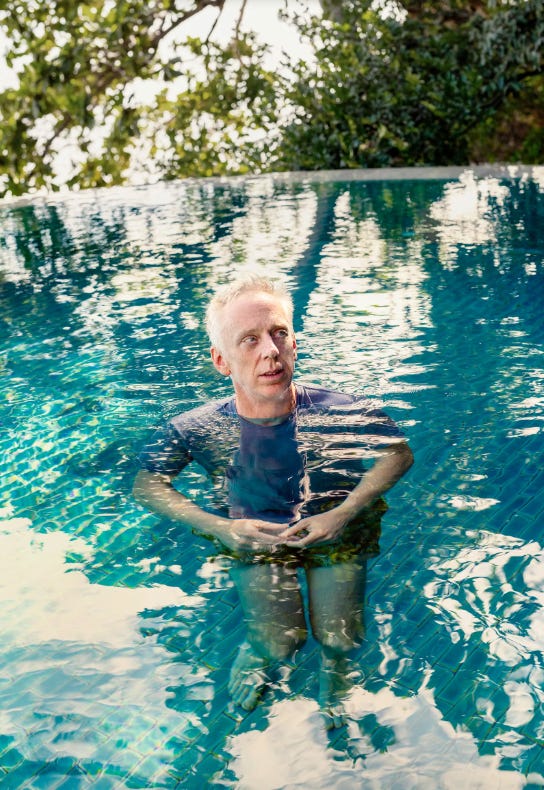
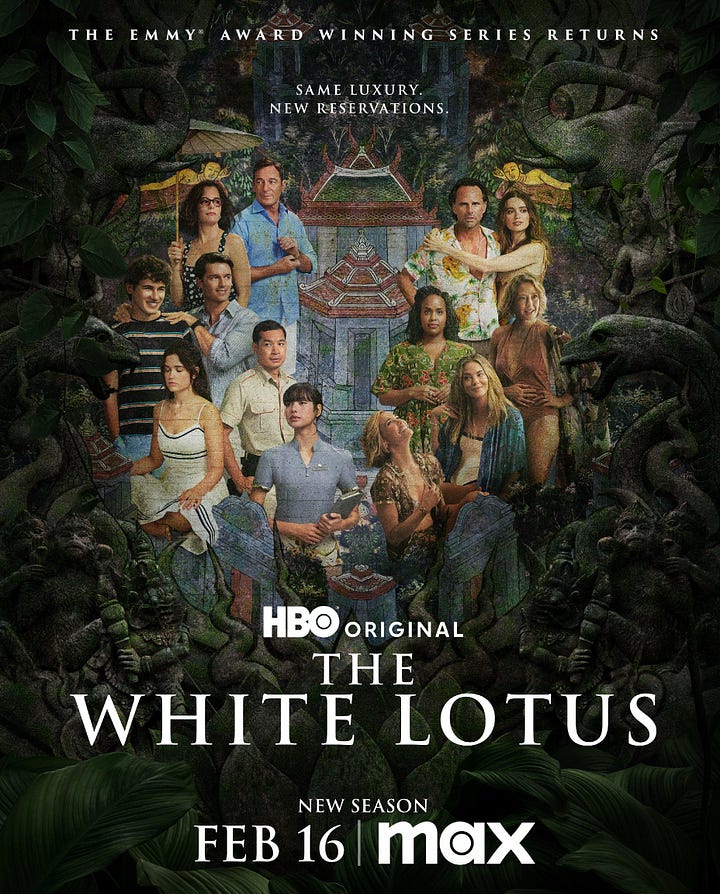
White’s greatest instinct is that he is not interested in exposing hypocrisy so much as he is tracing its texture: the soft grin of complicity, the slow-motion implosion of a man smiling too hard, the way leisure reveals weakness. His characters aren’t transforming—they’re disintegrating. Not into ruin, but into performance.
Season 1: A Death in the Tropics – Austen, Wilde, and the “Service Smile”
Each season of The White Lotus adheres to the same fatal formula: a death foretold, a cast of the obliviously privileged, and a backdrop of manicured paradise concealing social rot. But its shape is also architectural. Pitched during the early years of the global COVID-19 pandemic, The White Lotus was greenlit by HBO specifically because it could be shot on location with a quarantined cast. White structures each season around a single luxurious setting (a Hawaiian resort, a Sicilian villa, and Koh Samui, Thailand). The results are theatrical in the best sense: claustrophobic, recursive, simmering. Each season plays like a self-contained chamber drama, with core nucleus characters orbited by staff, locals, and interlopers—each functioning less as narrative satellites than as moral barometers.
What distinguishes each installment is the shifting literary lineage that haunts its cast. In the show’s first season, that lineage draws most heavily from Jane Austen’s social choreography, Oscar Wilde’s camped-up artifice, and elements of contemporary queer theory. White invites us to read these resorts like novels—or proscenium stages—whose curtains rise and fall on roughly the same moral scripts.
Set in Hawaii, Season 1 begins in parody and ends in body disposal. The tropical setting promises serenity, but the staffers are stressed and the guests intolerable; in short, the resort becomes a stage for class war dressed in flower leis.
Take Armond (played with especially sweaty, charismatic bravado by Murray Bartlett), a hotel manager teetering on the edge of psychosexual implosion. Armond is not just camp; he is cracked porcelain—refined, performative, and on the verge of shattering. A former addict now spiralling back into substance use, he clings to the rituals of customer service like a theology. His compulsive performance of cheerfulness echoes Judith Butler’s theory of performativity, in which normative roles (especially gendered and sexual ones) are upheld through constant repetition, even as they erode the self from within. But Armond also resembles one of Wilde’s more tragic dandies—less the blithe Algernon of The Importance of Being Earnest (1895) than the morally cornered Sir Robert Chiltern of An Ideal Husband (1895), undone by secrets he can no longer manage. His public persona—cheerful, managerial, enforced—is no longer a mask but a wound. Addicted to control and to substances, possibly as a result of his repressed homosexuality, Armond is Wilde’s Dorian Gray grown old and over-medicated, his decadence no longer gilded but grotesque. As Wilde writes in his Preface to The Picture of Dorian Gray (1890): “Behind every exquisite thing that existed, there was something tragic.” Armond is the tragic residue left when beauty has curdled into obligation.


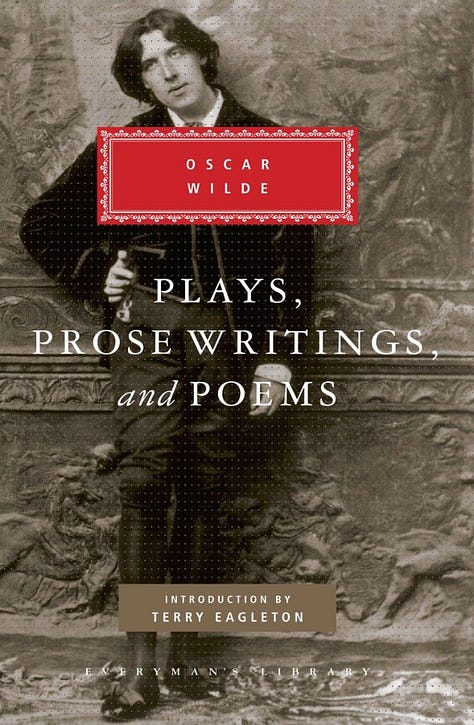


A closer reading of Armond’s final spiral reveals the show’s tonal tightrope. In Episode 6 (“Departures”), after a series of escalating infractions and humiliations—most involving the entitled guest Shane, the man-child who can’t let go of a booking error—Armond, aware that his job is over, breaks into Shane’s room. There, in a grotesque parody of both erotic agency and class revenge, he defecates in Shane’s suitcase. Shane stabs him moments later, mistaking him for an intruder. The violence does not feel cathartic, but pathetic. Armond doesn’t die in a confrontation; he dies in a bathroom. The fatal wound is not moral but managerial. He is not a fallen hero or villain but an employee whose control has slipped. Like Chiltern, his downfall is procedural, bureaucratic. The system permits neither collapse nor deviation from decorum.
Meanwhile, the Mossbachers offer the show’s most thoroughly Austenian tableau: a family of high-minded progressives blind to the structures of harm they inhabit. Nicole, a CFO who touts her glass-ceiling-smashing credentials, treats the resort staff with patronizing entitlement. Mark, her husband, enters the season in a state of emasculated drift, recently diagnosed with testicular cancer and desperate for a redemptive masculinity—he swims, he brags about apes, he flirts with tribal history like a lifestyle brand. Their daughter, Olivia, is a Columbia sophomore with a weaponized intellect—reading Fanon and quoting Plath—but her wokeness is cosmetic. She uses theory like a sabre. Her best friend Paula, more reserved, more observant, more sincere, is there on scholarship—both literal and metaphorical. She is the guest-within-the-guest, marginalized within the margins, and her quiet rage at the racial and economic spectacle she’s embedded in gives her the show’s moral weight. Like Fanny Price in Mansfield Park (1814), she is both witness and captive, lucid in her observations but powerless in her position.
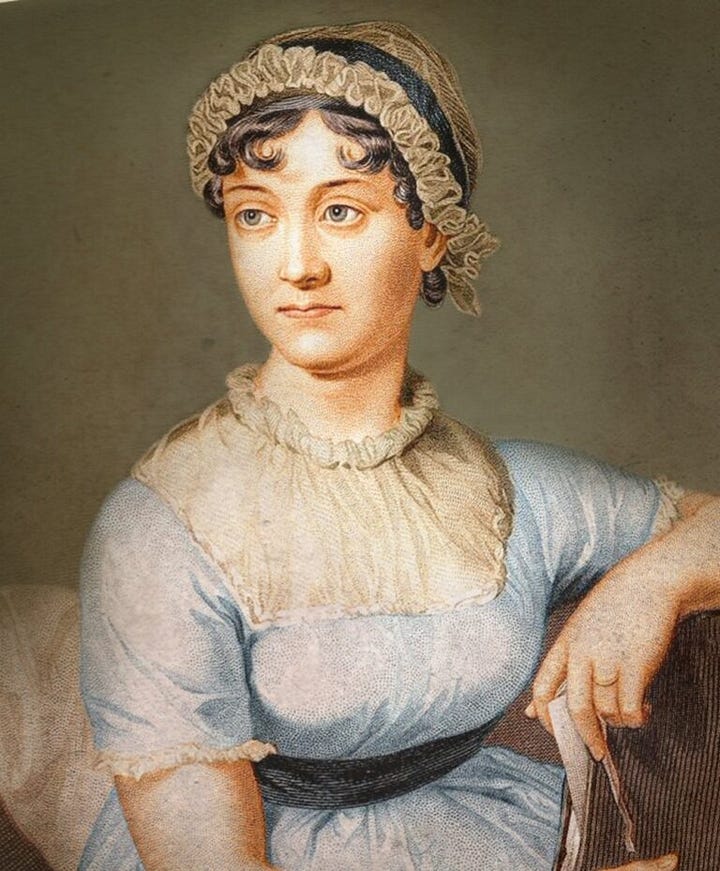



This dynamic erupts in one of the season’s most devastating scenes: the beachside confrontation in Episode 5. After Paula’s secret boyfriend, a hotel employee named Kai, is caught attempting to rob Olivia’s family, Olivia confronts her with a performance of wounded concern:
OLIVIA: You’re being so weird. Did something happen with Kai?
PAULA: Why do you even care?
The shot is cruel in its symmetry—two girls equidistant in the frame, mirrors rather than friends. Olivia’s follow-up—“I just think it’s messed up you didn’t tell me”—exposes her grievance as social, not ethical. Paula’s crime was not betrayal but disruption. Her flawed gesture of solidarity with Kai threatened the quiet choreography of power on which Olivia’s self-image depends. As in Austen, the most brutal punishments are reserved not for the overtly immoral, but for those who breach decorum.
And then there is Rachel—freelance journalist, newlywed, and the closest the show comes to a heroine. Her husband, Shane, a trust-fund brat disguised as a honeymooner, is obsessed with suite upgrades and legacy, treating luxury as a birthright and his wife as decor. He isn’t cruel, just entitled in a way that corrodes everything around him. Rachel, meanwhile, is awakening to the cost of the life she’s chosen. When she tells Shane, “I think I made a mistake,” it’s less rebellion than quiet despair.
Austen’s heroines often enter marriage with self-knowledge hard-won. Rachel sees the truth but has nowhere to go with it. Her return to Shane isn’t reconciliation—it’s surrender. She boards the plane beside him, expressionless: not reconciled, just resigned.
White reframes the marriage plot not as resolution but as defeat. Rachel isn’t redeemed by clarity—she’s neutralized by it. There is no second chance, no moral society, no village waiting. Just the next hotel, the next transaction. The story doesn’t end. It resets.
This is the genius—and the risk—of White’s writing. He does not stage moral transformation. He stages its impossibility. The show offers no character arcs, only character entrapments. Like the most cutting of Wilde’s comedies or the most ironic of Austen’s resolutions, The White Lotus flirts with satire but ends in structural defeat. The manners remain. But the meaning, like Armond’s body in the shipping crate, has already been disposed of.
Season 2: The Grand Tour Reversed – Highsmith, Waugh, and the Hollow Lineage
If Season 1 unravels in the tropics, Season 2 rots under Mediterranean sun. Sicily, with its mythic past and erotic legends, becomes the playground for a different cast of delusions. The Di Grassos—a grandfather, father, and son trio—are on a pilgrimage to rediscover their roots, but what they find is less Felliniesque than Brideshead Revisited (1945) stripped of its grace.

Bert, the grandfather, clings to an imagined Italy of patriarchs and piety; Dominic, his son, mired in sex addiction, seeks absolution through silence and money; and Albie, the Stanford-softened idealist, and the latest Di Grasso lined up to take on the family business, believes he’s above it all. They’re Waugh’s characters without the Church: nostalgic, degenerate, and spiritually adrift. Waugh’s Catholicism, for all its irony and theatricality, provided a scaffold for moral reckoning that (also) made his novels socially acceptable. Waugh’s characters often flailed against sin with the hope, however faint, of redemption. In White’s world, no such scaffold exists. The Di Grassos are marooned in secular inheritance, seeking meaning through bloodlines and aesthetic sentiment rather than spiritual gravity. Their pilgrimage becomes a hollow rite, stripped of transcendence, echoing a broader literary shift from sacramental vision to surface performance. Their homecoming is a farce: a staged encounter with distant relatives who shut the door in their faces.
Yet it’s in the Ethan–Cameron–Harper–Daphne quadrangle that The White Lotus slips most decisively into Highsmith mode. These aren’t just old college friends vacationing together—they’re locked in a slow, erotic duel of status, suspicion, and projection. Ethan, newly rich from a tech windfall, is haunted by the ghost of his less confident past; Cameron, his former roommate, is all casual menace and entitled virility, the kind of man who treats seduction like a competitive sport. They circle each other like predators, unsure who’s hunting whom, each one both threatened by and fascinated with the other’s life. Their dynamic channels The Talented Mr. Ripley (1955), not through murder or forgery, but through its core psychological mechanism: envy morphing into imitation, imitation into desire. Ethan wants what Cameron has—but not just his wife. He wants his freedom from self-doubt.
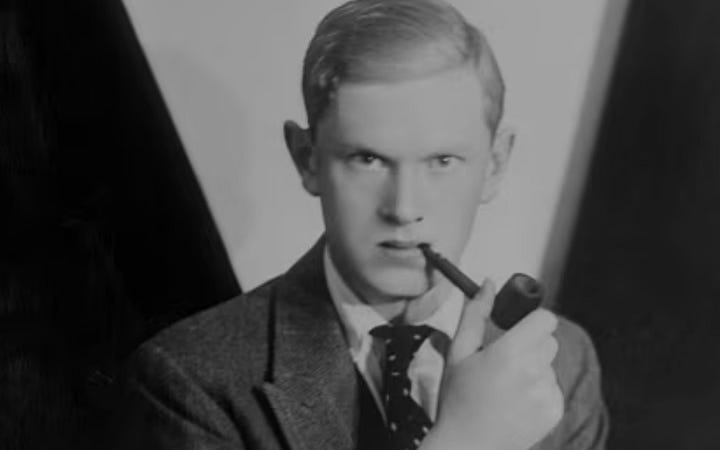



White resists the easy climax. No affair is confirmed, no confession made. Instead, suggestion does the work of revelation. The ambiguity becomes its own perverse intimacy. It doesn’t matter what happened. It matters that they can never be certain.
Meanwhile, the women are playing a longer game. Harper begins the trip skeptical and self-assured, but soon finds herself unraveling—unsure whether she’s being manipulated or manipulating in return. Daphne, Cameron’s wife, floats above the tension with tactical obliviousness. Her sunny detachment masks a deeper calculation: she knows exactly what kind of man she married, and keeps the peace by never naming the truth. “You do what you have to do not to feel like a victim,” she says, and in that moment reveals the show’s quiet thesis: the strongest survivors are those who master denial as a form of self-rule.
Parallel to them, Lucia and Mia—two local sex workers—move through the hotel with the elegance of seasoned con artists and the knowing smiles of survivalists. They are not just sirens; they are professionals who understand that intimacy is a transaction, and that narrative—who gets to tell what story—can be sold just like sex. Their escape, with pockets full and reputations unscathed, isn’t a triumph of feminism but of cunning. They play the game because they were never invited to invent the rules.
By season’s end, no truth has surfaced. Only performances remain. And in that, White mirrors Highsmith perfectly: it’s not the crime that undoes you—it’s the act of pretending it never happened.



Season 3: The Farce of Enlightenment—Conrad, Violence and the Colonial Hangover
Mike White’s third season of The White Lotus wants to be about spiritual transformation, but it’s really about stylish entropy. The setting is Thailand—exoticized, tranquilized, photographed like a yoga retreat brochure someone left in the back of a therapist’s office—and the guests have come, as always, to unwind in five-star despair. They chant. They cleanse. They say things like: “I’m holding space for that,” but there’s the same moral rot here as anywhere.

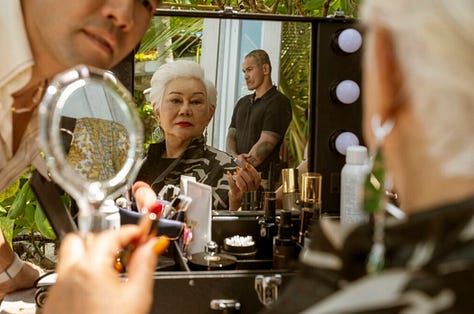




The show has always trafficked in tourism as moral camouflage, but this time the camouflage is paper-thin. The guests aren’t here for enlightenment. They’re here to disintegrate—beautifully, if possible. And at the centre of all this detox chic is Rick: damp, drawn, dead-eyed. He doesn't talk much, and when he does, it's like listening to someone trying to remember what remorse is supposed to sound like. His partner, Chelsea, flits around him with passive-aggressive cheer—like she’s done this before, like she knows he’s a man circling the drain and doesn’t want to get splashed.
For a few episodes, nothing seems to happen . . .
There’s a friend group that gossips like they're still in college, a half-hearted romance for a local staff member, and the requisite backdrop of spiritual décor—bells, incense, silence, Instagram. But all of it hangs in the air, waiting. And then it hits you: the season is stalling for Rick.
Rick is the story, but he’s not a protagonist. He’s a hole in the middle of the frame. He’s a man who has come not to find himself but to vanish tastefully. He submits to the rituals of healing with the dazed cooperation of someone on autopilot. He breathes when they tell him to breathe, drinks tea when they tell him to hydrate. It’s not spiritual. It’s administrative. Whatever broke in him broke a long time ago—and Thailand, with its saffron light and curated silence, is just the final stop on the apology tour he’s too tired to narrate.
Chelsea tries to drag a confession out of him. She thinks honesty might animate him. When he hesitates, she throws it back in his face: “This is so on-brand for you—to be a victim of your own decisions.” It’s the only moment Rick seems to flinch. But even that feels automatic. Like everything else, it’s part of the performance: the disgraced man humbled by wellness.
There’s a scene in Episode 6 where Rick stands at the edge of the jungle, motionless, staring into something that might not be there. The camera lingers. For once, the show stops looking at itself and just . . . watches. It’s the closest White has come to the closeness of a limited third-person narrator.
And around Rick, the rest of the season hums and purrs like a resort soundscape. There’s Mook, a local employee folded into a romance subplot that dissolves the moment it threatens to matter. The Ratliff family, with their blank civility and glacial menace, hover like a secret no one wants to name. They all look good doing it, too—this is some of the prettiest misery on television (not a compliment). But White, to his credit, knows the horror isn’t in what these people do. It’s in how easy it’s become.


The Heart of Darkness reference isn’t subtle, but it works. Conrad’s line about the conquest of the earth being “redeemed by the idea” is quoted almost word-for-word by the show's structure. Only there is no idea here—just a boutique version of despair, laminated and priced. The horror isn’t the body in the water. The horror is that nobody learns a thing. They chant. They journal. They meditate. They leave. The jungle was always just a backdrop—except for Rick, who entered into the jungle with clear, novelistically depicted intentions.
I spent the first half of the season wondering if it was going anywhere. It was—straight into the void. White lets the show idle, lets the saffron light shimmer, lets Rick quietly vanish. And by the end, you realize you haven’t been watching a redemption arc at all, but a disappearance. Not loud. Not tragic, necessarily. Just eerily seamless—just, as always: perfectly on-brand.
Fiction in Retreat: Armond, Rick, and the Afterlife of the Novel
There’s a temptation, whenever a new phenomenon like The White Lotus comes around, to say that it heralds the death of the novel—that it has done what contemporary fiction so often fails to do: dramatize the slow, sickening collapse of bourgeois ideals with wit, economy, and a camera that knows exactly when to flinch. But this would be a misreading. The show doesn’t mark the novel’s end. It clings to the novel’s ruined scaffolding. It depends on the novel for its shape, its mood, its sense of psychological weight. And in doing so, it also reveals just how fragile the entire edifice of narrative sophistication has become.
The clearest proof lies in its most broken men: Armond and Rick. Armond, from Season 1, is theatrical in his ruin—a peacock shedding feathers as his control slips. He begins the season manicured and precise, a hotelier playing host like a man auditioning for sainthood. But the smile is thin, and the collapse is spectacular. By the end, he’s so deep in his own parody that the only gesture left is to defile the very institution that shaped him. He doesn’t die tragically. He dies like a man caught trying to return the performance to the gods. And no one applauds.
Rick, by contrast, gives us nothing. And that’s the point. In Season 3, he arrives already half-erased: sunken-eyed, monosyllabic, inert. His journey is not one of discovery, but attrition. He doesn’t explode—he evaporates. He submits to ritual not because he believes in it, but because it comes with slippers and a view. Whatever he came to Thailand to confront is no longer available to him, or to us. The jungle is just a screen.
They speak through silence, posture, deflection, and dissociation. They’re written with a novelist’s ear and blocked with a director’s restraint. Their arcs are old-fashioned in the best sense: detailed, damning, intimate. And this is precisely what makes The White Lotus feel so strange in the current cultural landscape—it requires us to read.
Television, in this—its “Golden Age”—has become the vessel for the literary instincts a declining fiction market can no longer sustain. The structure of the serial, the tension of point-of-view, the long tail of character nuance—these are all borrowed from the novel, and The White Lotus wears its influences openly: Austen, Wilde, Highsmith, Conrad. But with traditional publishing in crisis and readerships shrinking, one has to ask: how long can this go on?
In a society where fewer people are reading novels at all—where fiction is increasingly packaged as therapy, sermon, or moral utility—the future of television becomes increasingly unclear. Shows like The White Lotus rely on an audience trained, however distantly, in literary form. They ask for patience, inference, and irony. They presume some fluency in the narrative arts that shaped them. But what happens when that fluency fades? When there’s no shared canon left to subvert?
The White Lotus is not television killing the novel. It’s television nursing the novel’s dying breath. Its finest moments—Armond’s unravelling, Rick’s disappearance—depend on our recognition of interior collapse, of lives shaped by invisible social contracts and emotional debts no one quite remembers agreeing to. These aren’t “TV characters.” They’re fictional souls built in our absence of a God and in the ruins of Freud.
What White has made is not the new novel. It’s the ghost of one. And the question isn’t whether television has replaced literature; it’s whether television can survive the collapse of the thing that gave it meaning.






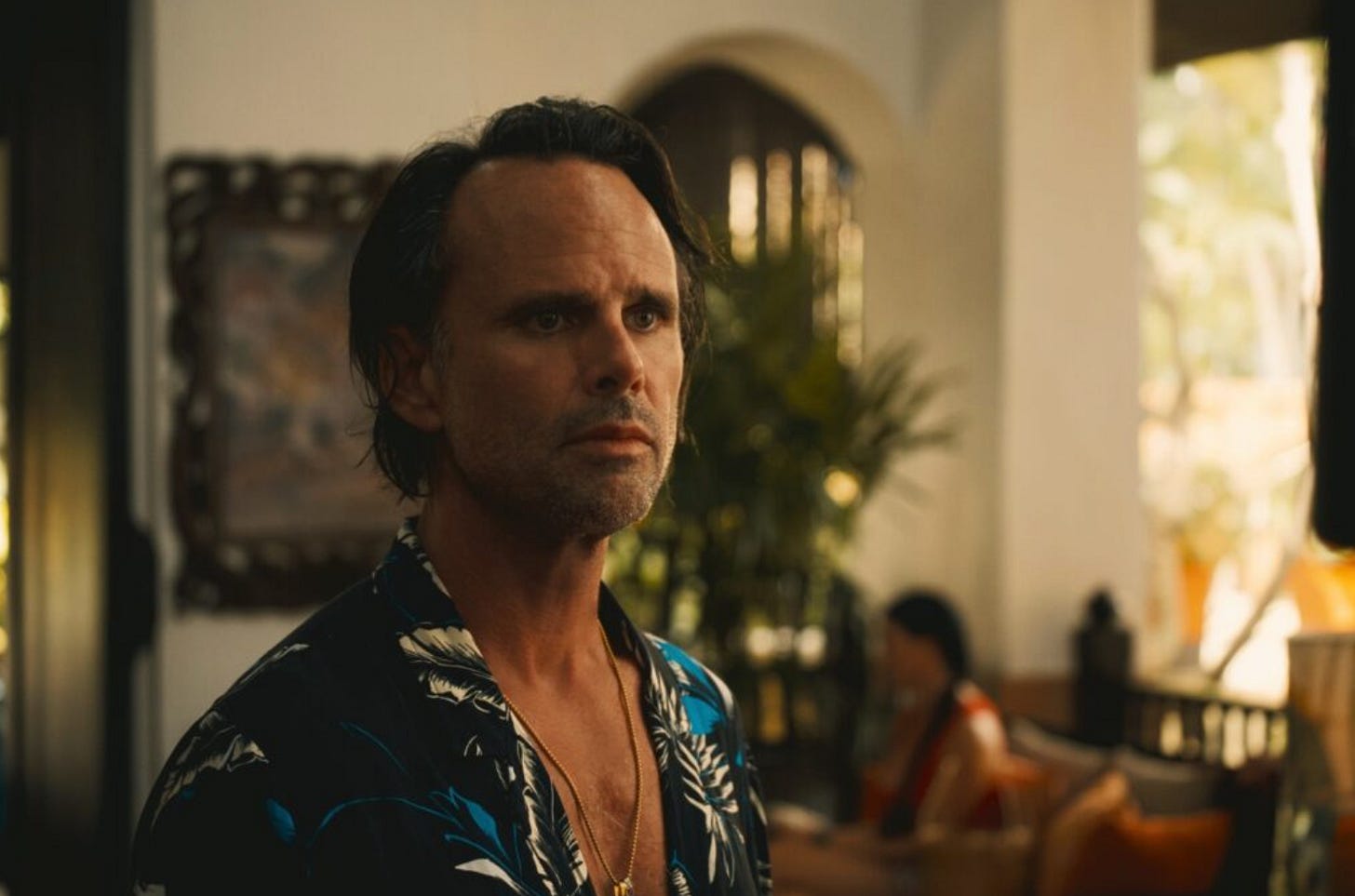


I actually have Audition on my Kindle already 😉 Good shout! Thank you, Abra!
Hadn't thought of this connection! Really thoughtful. Will have to chew on it 💭